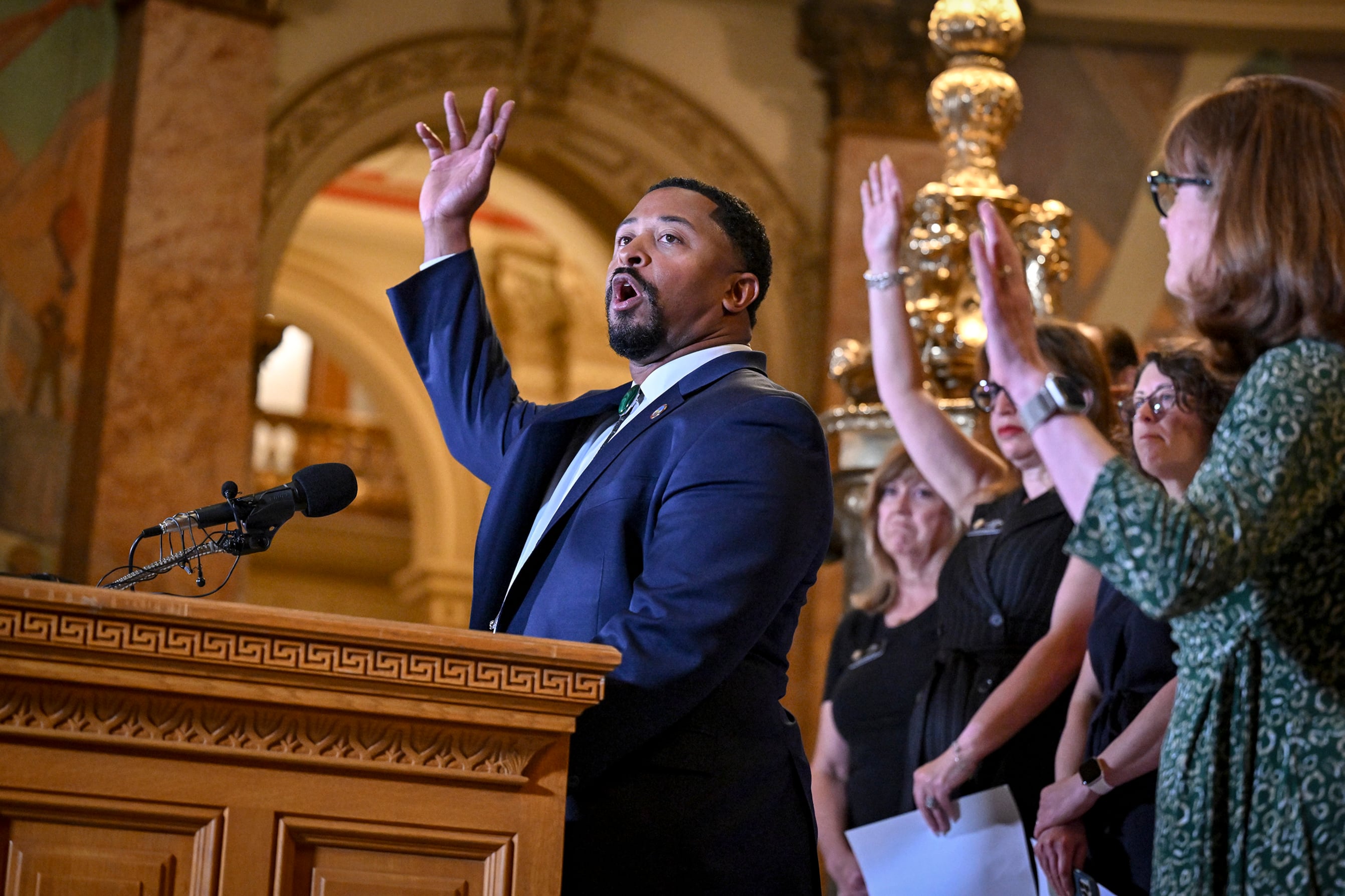Sign up for Chalkbeat Colorado’s free daily newsletter to get the latest reporting from us, plus curated news from other Colorado outlets, delivered to your inbox.
Colorado voters are set to consider two ballot measures this year to help fund free school meals. But state lawmakers now want one of the measures to also cover the costs of federal food benefits that have been cut.
State lawmakers initially put Proposition MM on the ballot to ensure the state’s two-year-old Healthy School Meals for All program, which provides free school meals to all Colorado students, has enough money to operate.
Proposition MM, one of the two November ballot measures, would raise an additional $95 million annually by increasing income taxes on households earning $300,000 or more annually. An estimated 200,000 tax filers, or about 6% of filers in Colorado, would be affected, according to the measure.
Senate Bill 3, under consideration during a special legislative session that began Thursday, would amend Proposition MM to allow money raised by the measure to cover costs associated with the federal Supplemental Nutrition Assistance Program, or SNAP. State lawmakers say the state would first pay Healthy School Meals for All expenses and then use any extra money to counteract cuts to the SNAP program.
The bill passed its first hearing on Thursday in the Senate Health and Human Services Committee with a 7-2 vote. It will now be heard by the full Senate.
“If voters approve MM, we can both protect access to nutritious school meals for every child and help to safeguard SNAP as families face devastating federal cuts,” Anya Rose, who is Hunger Free Colorado’s director of public policy, testified during the Thursday hearing.
The cuts to SNAP come after Congress approved a tax and domestic policy bill often referred to as the “big beautiful bill.” The law ends an exemption that certain adults, including veterans and those who have aged out of foster care, don’t need to be employed in order to receive SNAP benefits. It also makes states pay for a higher percentage of administrative costs.
State Sen. Dafna Michaelson-Jenet, a Democrat, said SNAP supports over 300,000 low-income Colorado families, including many children, adults with disabilities, and elderly people. Abby McClelland, with the Colorado Department of Human Services, testified that SNAP provides each family with about 48 meals per month.
“SNAP allows them to continue to purchase the foods that they need,” said Michaelson-Jenet, a sponsor of Senate Bill 3. “And it also strengthens our local economies while supporting our farmers and ranchers.”
Along with Michaelson-Jenet, the bill’s sponsors include Democratic state Sen. Katie Wallace, and Democratic state Reps. Lorena García and Katie Stewart. Lawmakers said the bill has support from over 20 advocacy groups, including the Colorado Nurses Association and Hunger Free Colorado.
Colorado’s Healthy School Meals for All program has been popular but has also cost more than expected.
Proposition MM is one of two ballot measures related to the program that voters will consider in November. The other, Proposition LL, would allow the state to retain money already collected for the program. Senate Bill 3 doesn’t make any changes to Proposition LL.
If the ballot measures fail, school meals would no longer be free for all Colorado students. Schools that currently participate in the federal Community Eligibility Provision program would still qualify for meals free of charge. That federal program allows the nation’s lowest-income schools and districts to serve meals at no cost to students without collecting free or reduced-price lunch applications.
Schools where at least 25% of the student population qualifies for the free or reduced-price lunch because they’re eligible for SNAP or Medicaid would also continue to receive state funding.
Students at schools that don’t meet either criterion would have to fill out a federal form to receive free or reduced-priced meals.
The cuts to SNAP aren’t the only issue Colorado’s dealing with due to the tax and policy bill that President Donald Trump signed in July.
Colorado’s state tax code is linked to the federal tax code. As such, the federal changes will reduce this year’s state income tax collections by an estimated $1.2 billion. Most of that comes from corporate income tax revenue.
The state will be able to cover some of that lost revenue, but it faces an $800 million shortfall this year. Colorado is required to have a balanced budget, and Democratic Gov. Jared Polis said the deficit needed immediate action, which is why he called the special session.
“This isn’t about rhetoric; this is about hard numbers and balancing our budget,” Polis said in a news release. “We are committed to working alongside the General Assembly to address the unexpected and immediate revenue shortage.“
The session will focus mostly on tax code adjustments to help plug the revenue hole. Lawmakers will also debate how to prevent increases in health insurance premiums, make changes to the state’s AI law, and preserve certain services, such as access to Planned Parenthood and the food benefits.
Jason Gonzales is a reporter covering higher education and the Colorado legislature. Chalkbeat Colorado partners with Open Campus on higher education coverage. Contact Jason at jgonzales@chalkbeat.org.





